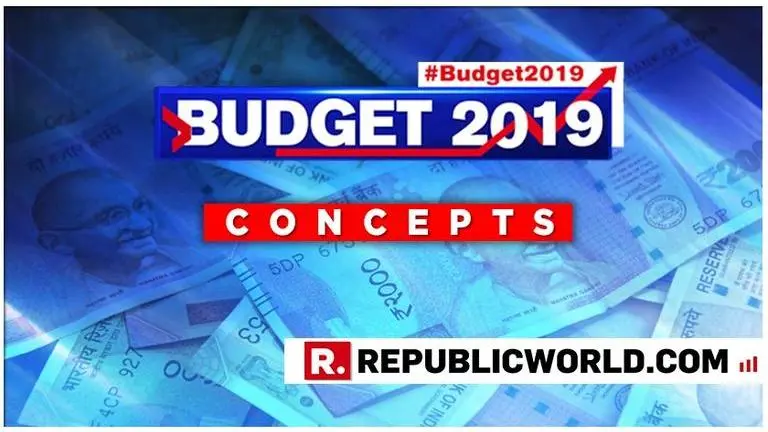Updated 1 February 2019 at 11:58 IST
Union Budget 2019: Decoding the important terms to help you understand Budget
The Union Government is all set to present the Interim Budget for the fiscal year 2019-20 on February 1. It was announced on January 23 that current Railways and Coal Minister Piyush Goyal will be presenting the 'interim budget' in the Parliament as the interim Finance Minister.
- Republic Business
- 0 min read

The Union Government is all set to present the Interim Budget for the fiscal year 2019-20 on February 1. It was announced on January 23 that current Railways and Coal Minister Piyush Goyal will be presenting the 'interim budget' in the Parliament as the interim Finance Minister.
Furthermore, on January 30, the Finance Ministry also clarified that "this Budget will be called Interim Budget 2019-20". Like every year, during his address in the budget session, the Finance Minister is scheduled to announce an annual report on expenditure and revenue plans of the government for the next financial year.
Here's a guideline to the complex terms to help you understand the budget with ease:
Interim Budget
Interim Budget refers to the budget of a government that is going through a transition period. Traditionally, the ongoing government presents the 'Interim Budget' in the year when the general elections are scheduled to take place. It is similar to the regular budget, since the union government presents a complete documentation on the financial statement on its revenue and expenditure for the fiscal year. During the transition period before a new government comes to power, the ruling government needs the Parliament’s approval to extract money from the Consolidated Fund of India, where the government puts all its revenue.
Budget (Annual financial statement)
The budget is also known as the annual financial statement, presented by the government highlighting its expenditure and receipts. It is one of the main aspects of a government’s budget mandated by the Constitution to present the same on the floor of the parliament. The budget for the coming financial year has to be sanctioned by the parliament. Without the approval of the houses of Parliament, the government cannot draw from the Consolidated Fund of India.
Advertisement
Vote On Account
A vote-on-account presents an estimate of expenditures to be sanctioned by the exchequer till the regular Budget is passed. It is treated as a grant in advance issued by the Parliament, without discussion in Lok Sabha. However, the full budget is passed only after discussions and voting-on-demand for grants. For the interim Budget 2019, the Vote on Account will only be valid for three months before the new government presents a full-fledged budget in July for the next fiscal year.
Corporate tax
Corporate Tax is the tax paid by the corporations or firms on the incomes they earn. Various rates of corporate taxes are levied for different levels of profits earned by business houses. Corporate tax or company tax can be assumed as an Income Tax for income earned by businesses.
Advertisement
Repo Rate
Repo rate refers to the rate of interest paid to the RBI by commercial banks for short-term loans that it lends against government securities. It is basically used by RBI to keep inflation under control.
Fiscal Deficit
Fiscal deficit is traditionally the difference between the total revenue and the total expenditure of the government. It occurs when the government's total expenditure exceeds the revenue that it generates, excluding the external borrowing.
Budget estimates
It refers to the amount of money allocated to a ministry or a scheme in the Budget during a financial year.
Revised estimates
Revised Estimates are mid-year estimates of possible expenditure, taking into account the trend of expenditure. These estimates are not voted by the Parliament. It take into account the likely expenditure and receipts for the balance six months.
Minimum Alternate Tax (MAT)
MAT is a minimum amount of tax that any company is liable to pay, even if it falls under zero tax limits. It ensures that companies that reduce their tax liability (up to zero per cent) are brought under the federal tax net.
Fiscal policy
Fiscal policy is a layout of the estimated taxation and government’s spending denoting the adjustments in spending level and tax rates which serves as a key instrument to monitor the country’s current economic position.
Published By : Monica Aggarwal
Published On: 31 January 2019 at 15:47 IST
